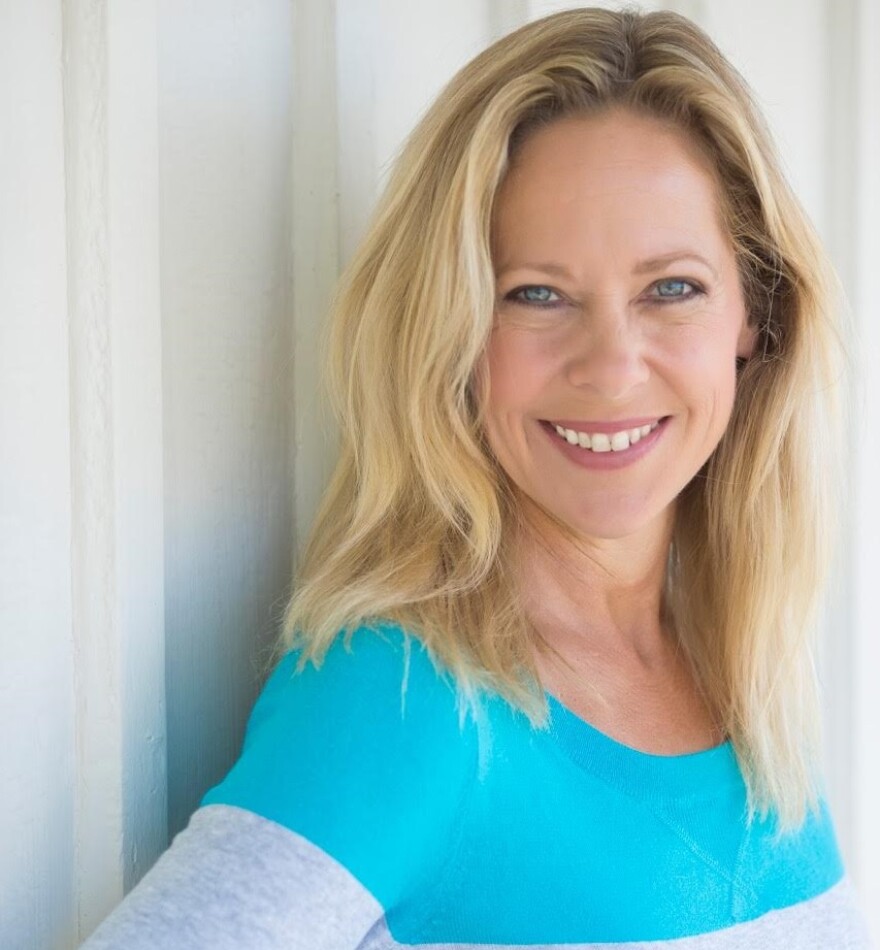On Saturday night, I dreamed I was in the living room of an older wealthy woman. I stood next to her delivering an emphatic, tearful plea, insisting, "When you are born into privilege it is your responsibility to help others less fortunate than you." Man, I was really crying.
The scene was so vivid and visceral—from the walnut paneled-walls and red leather Chesterfield armchair to the woman’s neatly trimmed gray hair, to the dramatic and forceful delivery of my statement—that, unlike with most dreams, I remembered every detail of it when I woke up.
Shaking off the heaviness of the dream, I went downstairs to have coffee and read the Sunday paper. One of the first articles I read was the “One Nation: I am an American” column, syndicated by the USA Today Network.
The person-of-the-week interviewed was Gregg Rochman, a developer in Louisville, Kentucky, and in the first paragraph he said, “I grew up in an affluent area and I could have done anything I wanted. But, because of that privilege, I have a duty to share and to give back.”
Oh, snap! His comments were my dream verbatim.
In Rochman’s case, he renovates historic properties into affordable housing.
“We have a land with vast resources and a people capable of anything,” he said, before adding a sobering caveat. “Currently, Americans are divided from one another. We do not do everything in our power to house the homeless, feed the hungry, clothe the cold, educate the poor and support each other with the goal of the betterment of everyone—even though it is within our reach.”
In addition to creating low-income housing, Rochman volunteers for New Roots, a nonprofit food justice organization that brings farm-fresh produce to food insecure communities.
Then, in the business section of the paper, there was an article about Sudu Radia, the CEO of Bankers Trust, who is retiring.
Based in Des Moines, Iowa, Mr. Radia is an Indian who was born and raised in Uganda and came to the U.S. as a young immigrant. While attending Iowa State University, his family fled Uganda after Idi Amin’s coup d’état leaving Radia with no home to return to. He stayed in Iowa, completed his education, and worked his way up to the status of “privileged.”
The article was a tribute to how he used that privilege to help others.
“Pay your civic rent,” Radia said, but not by simply writing a check. A philanthropist long before he had money, he understood the value of volunteering and, in 1976, began giving his time to help United Way. From there, “my feelings of duty, compassion and gratitude have only spiraled,” he said.
As a board member in 2010, he visited local agencies supported by United Way, with some of those visits causing him to weep in his car after seeing the vulnerable populations first-hand.
“How can I be so lucky?,” he said. “I’m sitting there in a Lexus and my car’s probably worth more than the building in which the agency is housed. It was very difficult. Your heart just goes out to these folks.”
Radia also raises funds for numerous nonprofits—from Habitat for Humanity to the American Diabetes Association—and mentors 40 individuals passing along his message about giving back to others.
It was eerie to read two articles in a row about using privilege to help others less fortunate—living examples portraying the exact sentiment of my dream immediately upon waking.
Was it some kind of psychic message?
A call to action?
Or was it the Baader-Meinhof Phenomenon—also known as frequency illusion—when, say, you buy a silver Volkswagen and suddenly you see silver Volkswagens everywhere you look?
The examples kept coming.
I read an article online about a couple in Salem, Oregon, who own a Korean restaurant. They close early on Mondays to cook for the homeless, paying for the ingredients themselves. They load their van with vats of prepared food, set up a buffet line underneath a concrete bridge, and serve hot meals of curry and corn dogs to 200 hungry people. Every week.
Another example showed up in my own house.
I had been in a quandary over holiday gifts for my boyfriend’s family. They always give us something and I feel obligated to reciprocate.
Doug, my boyfriend, insists, “I don’t want to spend money on things they don’t need. I always give $500 to Camp Courageous in my family’s name. That’s my gift.”
“But it’s awkward to not have any presents for them,” I said.
Doug had a solution.
“Here’s $100. When you go to the grocery store today, buy four $25 gift certificates. We’ll give them each one and tell them to give it to someone else in need. To pay their civic rent.”
He smiled, acknowledging that he, too, had read the Sunday paper.
The words of my dream have stuck with me. When you are born into privilege, it is your responsibility to help others less fortunate than you.
I don’t earn much money, but I recognize my abundance of privilege—my college education, my comfortable home, my well-stocked refrigerator, my closet full of warm clothes, and yes, my skin color.
As we go forward into a new year, let’s all check our privilege by counting our blessings—and then share them. Let’s make a single resolution to take responsibility for helping others less fortunate and look for ways to give back, to improve our communities and our relationships within them. If we all do our part, we can begin to repair some of our divisions in the process.
Like Gregg Rochman said, “We are privileged to live in this country. We are capable of anything.” There are positive examples to follow everywhere; all you have to do is look.
Beth Howard is an author and blogger. Her website is TheWorldNeedsMorePie.com.
The opinions expressed are not necessarily those of the University or Tri States Public Radio. Diverse viewpoints are welcome and encouraged.





